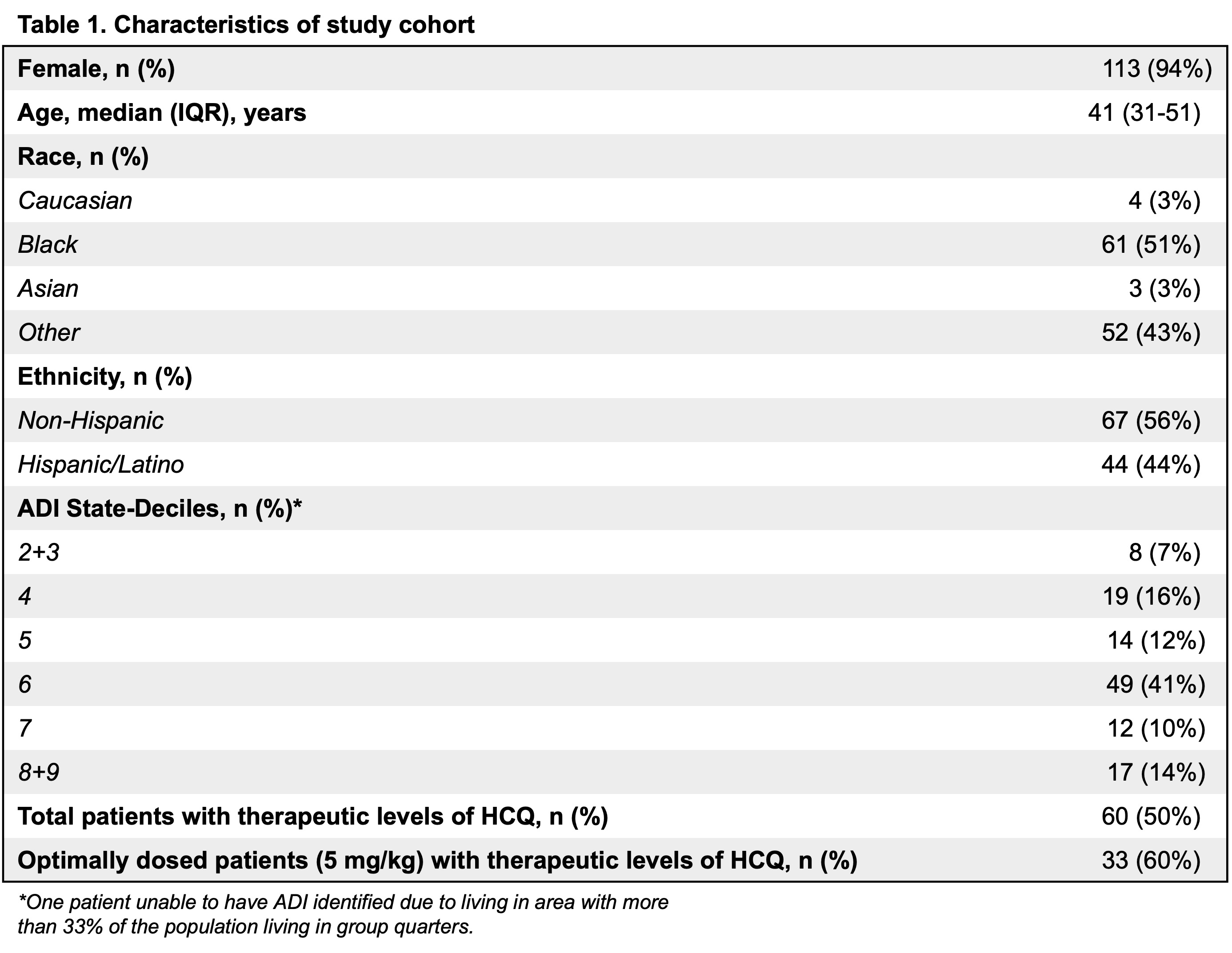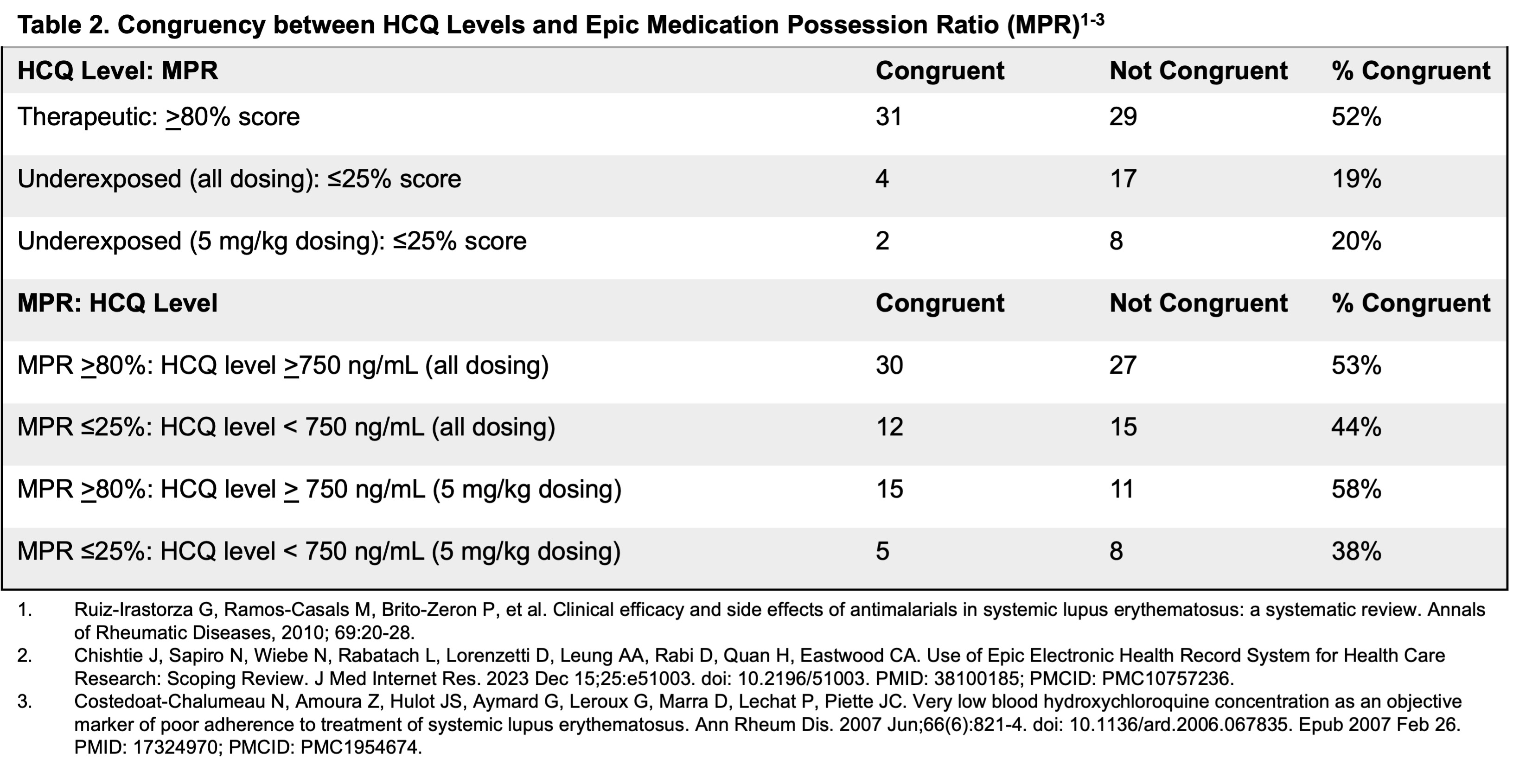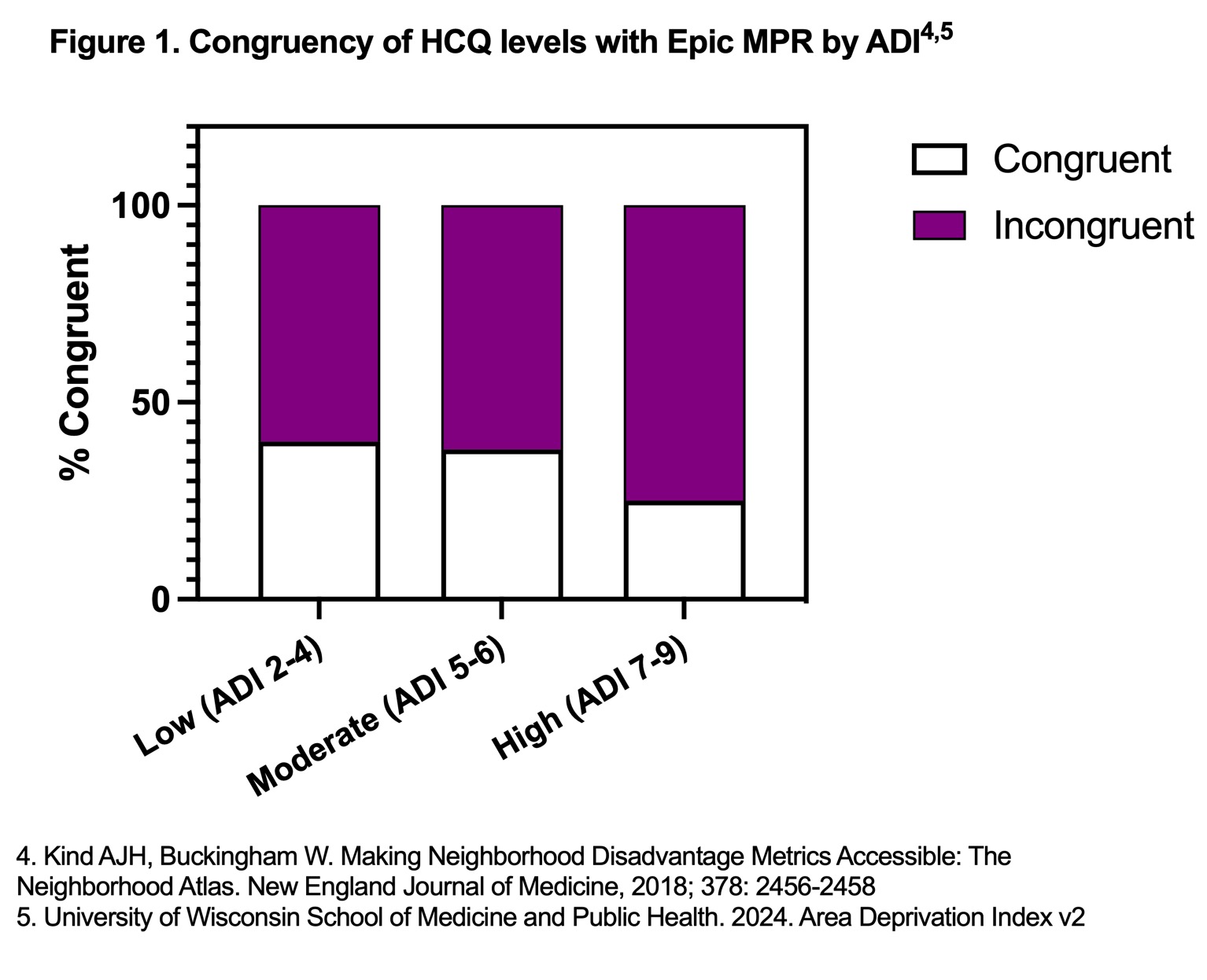Session Information
Date: Saturday, November 16, 2024
Title: SLE – Treatment Poster I
Session Type: Poster Session A
Session Time: 10:30AM-12:30PM
Background/Purpose: Nonadherence to hydroxychloroquine (HCQ) is associated with poor outcomes in SLE.1 Electronic Health Record (EHR) platforms collect data on patient medication access through dispensing reports from external pharmacies, potentially serving as a surrogate measure of patient medication adherence. To assess the accuracy of this tool in a diverse, urban cohort of SLE patients, we compared the medication adherence score calculated through Epic EHR, the most adopted EHR worldwide,2 to blood levels of HCQ, a direct measurement of medication adherence.3
Methods: Retrospective analysis of 120 patients, all satisfying the 2019 EULAR/ACR Criteria, at a tertiary academic medical center in the Bronx, NY, who had HCQ blood levels measured between January 2023 and May 2024. Blood levels ≥750 ng/mL were considered therapeutic and those ≤200 ng/mL were considered underexposed. Epic medication possession ratios (MPR) are determined by comparing the outpatient medication list in Epic with the number of times a medication has been dispensed leading to a percentage score, with ≥80% considered adherent. Based on their home addresses, patients were classified into state-specific deciles of the Area Deprivation Index (ADI), a validated tool that quantifies disadvantage on a neighborhood level, with higher scores indicating greater socioeconomic disadvantage.4,5 Congruency between Epic-derived MPR and blood HCQ levels was analyzed for the whole group and at the levels of low, moderate, and high ADIs.
Results: Of 120 patients, 60 (50%) had therapeutic blood levels of HCQ and 21 (18%) were underexposed. For patients with therapeutic HCQ levels, only 52% had MPRs ≥80%, while 43% of those who were underexposed still had MPRs ≥80%. Among underexposed patients who were prescribed optimal HCQ dosing (5 mg/kg, n=10), only 20% had MPRs ≤25%. Of the 57 patients with MPRs ≥80%, 30 (53%) had therapeutic HCQ levels; and of the 27 patients with MPRs ≤25%, only 12 (44%) had subtherapeutic HCQ levels. Congruency of blood levels of HCQ and MPR was not significantly different between ADI levels.
Conclusion: Overall, MPRs generated by Epic EHR did not correspond with blood HCQ levels, even when accounting for dosing strategy and ADI. For those patients with ≤200 ng/mL blood HCQ, 43% had MPRs ≥80%, suggesting that disease education and health literacy may be a more significant barrier to medication adherence than access to medication in this population. These findings indicate that blood HCQ levels should continue to be used to guide patient discussions regarding medication adherence, while readily available EHR tools should be used with caution.
To cite this abstract in AMA style:
Brennan K, Sun K, Ramu A, Allen J, Shafik J, Schwartz N. There Are No Shortcuts: Electronic Health Record-Generated Tool Does Not Reflect Medication Adherence in Patients with SLEin Bronx, NY [abstract]. Arthritis Rheumatol. 2024; 76 (suppl 9). https://acrabstracts.org/abstract/there-are-no-shortcuts-electronic-health-record-generated-tool-does-not-reflect-medication-adherence-in-patients-with-slein-bronx-ny/. Accessed .« Back to ACR Convergence 2024
ACR Meeting Abstracts - https://acrabstracts.org/abstract/there-are-no-shortcuts-electronic-health-record-generated-tool-does-not-reflect-medication-adherence-in-patients-with-slein-bronx-ny/



